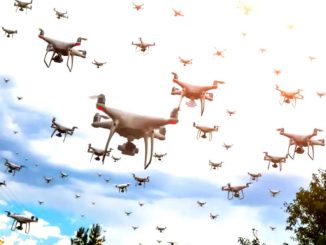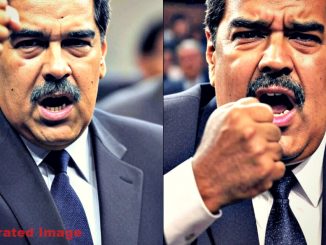
| Published July 7, 2025
As NATO’s newly appointed Secretary General Mark Rutte warns of an impending conflict with Russia and China, a fiery response from the Kremlin has grabbed international headlines—not for its policy insight, but for its sarcasm. Dmitry Medvedev, former Russian president and now deputy chairman of Russia’s Security Council, dismissed Rutte’s concerns in a scathing jab, suggesting the Dutch leader was “on magic mushrooms.”
The biting remark came after Rutte issued his first major statements as NATO’s chief, sounding the alarm over what he sees as growing cooperation between China and Russia. In comments that resembled a scene from the 1984 cult classic Red Dawn, Rutte warned that the West should prepare for the possibility of a global war—perhaps even within the next two decades.
“We must prepare ourselves for a conflict with adversaries who are growing closer,” Rutte said, referring to the increasing alignment between Beijing and Moscow.
His comments were echoed in an op-ed in The Sun, where Rutte warned NATO nations to act now or face a disastrous outcome later. His rhetoric leaned heavily into deterrence, urging member states to invest in defense readiness and strategic unity before it’s too late.
But in Moscow, those warnings were met with ridicule.
Medvedev, known for his provocative and often unfiltered posts on Telegram, responded to Rutte’s statements with a wave of sarcasm:
“Rutte, who only just took office as NATO Secretary General, has started his career with a delusional statement, warning of an upcoming war with Russia and China… Apparently he’s on magic mushrooms.”
The Kremlin veteran went further, accusing Rutte of “hysteria” and stoking Cold War-style paranoia. Medvedev’s mockery appears to be part of a broader effort by Russia to portray NATO as fearmongering and unstable in its leadership.
While Rutte’s comments reflect a growing concern among Western leaders about geopolitical shifts and the strengthening of the Russia-China axis, Medvedev’s reaction signals that Moscow is not taking those warnings seriously—at least not in public.
Yet behind the rhetoric, tensions are mounting. China and Russia have conducted joint military drills, shared economic strategies to bypass Western sanctions, and coordinated diplomatic pushback against NATO-aligned countries. Analysts say this partnership, though not a formal alliance, represents a challenge to the U.S.-led international order.
Rutte’s arrival at NATO comes at a pivotal moment. The alliance is navigating wars on its eastern flank, rising threats in the Indo-Pacific, and increasing domestic political divides among member states. His choice to issue such a dramatic warning so early in his term suggests a leadership style that will not shy away from confrontation—or colorful headlines.
But for now, Medvedev’s “magic mushrooms” jab has shifted attention from Rutte’s warnings to the strange new flavor of rhetoric defining 21st-century geopolitics.
President of Russia Vladimir Putin (R) and President of China Xi Jinping (L)Credit: EPA
China would start by seeking to grab Taiwan – while ensuring the Kremlin dictator simultaneously attacks Nato territory.
 Implications
Implications
The implications of Dmitry Medvedev mocking NATO Secretary-General Mark Rutte as being “on magic mushrooms” go far beyond mere insult—they reflect deepening global tensions and shifting geopolitical dynamics. Here’s a breakdown of the key implications:
🧠 1. Breakdown in Diplomatic Norms
Medvedev’s language is unusually crude for a high-ranking official, signaling how diplomatic discourse between Russia and the West has deteriorated into open mockery and hostility.
➡ Implication: Communication channels are closing or becoming less serious, reducing chances of de-escalation or negotiation in times of crisis.
🔥 2. Rising East vs. West Tensions
Rutte’s warning about a Russia-China axis triggering a potential WW3 scenario may sound alarmist, but it underscores what many in the West increasingly fear: a tightening alliance between Moscow and Beijing.
➡ Implication: The NATO-Russia-China relationship is shifting from competitive to adversarial—raising the risk of open conflict.
🧨 3. Escalating Propaganda & Psychological Warfare
Medvedev’s mocking response wasn’t just for laughs—it was likely aimed at discrediting Rutte and NATO leadership in front of Russian and global audiences.
➡ Implication: Information warfare is intensifying. Russia is framing NATO leaders as irrational, while NATO frames Russia and China as authoritarian aggressors.
🌍 4. Serious Global Security Concerns
Despite the sarcasm, Rutte’s message was grounded in a real concern: the unprecedented coordination between two of NATO’s largest adversaries.
➡ Implication: Western nations may accelerate military spending, strategic partnerships (e.g., AUKUS, QUAD), and cyber defense, preparing for a more volatile international order.
🗳️ 5. Political Messaging—Internally and Externally
Medvedev’s comment plays well with hardline nationalists in Russia and helps maintain a posture of strength. Rutte, on the other hand, sends a signal to NATO allies that complacency is dangerous.
➡ Implication: Both sides are rallying their domestic and allied audiences for a long-term ideological and strategic rivalry.
⚖️ 6. NATO’s Image and Unity at Stake
Rutte’s credibility as NATO’s new leader may suffer among skeptics if he’s perceived as too alarmist—or too easily provoked.
➡ Implication: NATO’s unity depends not just on defense readiness but also on clear-headed, credible leadership. This episode tests that perception.
 Overall Takeaway:
Overall Takeaway:
Mark Rutte’s apocalyptic warning about a looming world war with Russia and China isn’t a sign of strength—it’s a signal that NATO’s leadership is more interested in fear-mongering than pursuing peace through strength and national sovereignty. Instead of focusing on real security threats like open borders, economic coercion from Beijing, and cultural erosion in the West, globalist bureaucrats like Rutte are busy rehearsing Cold War fantasies.
Dmitry Medvedev’s mocking tone—while crude—may have struck a nerve because it exposes the theatrical, almost delusional mindset of Western elites. If NATO wants to be taken seriously, it should stop pushing global entanglements and start prioritizing the actual defense of its member nations—without dragging the world into another endless, ideological confrontation.
Let Europe defend Europe. Let America defend Americans. And let the globalists drop the mushrooms and return to reality.









Be the first to comment